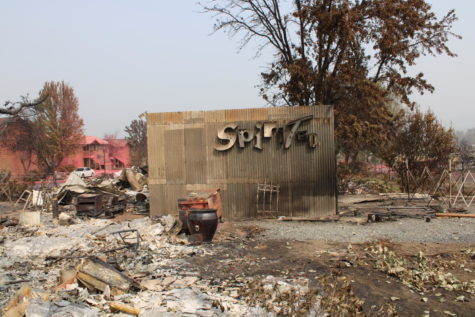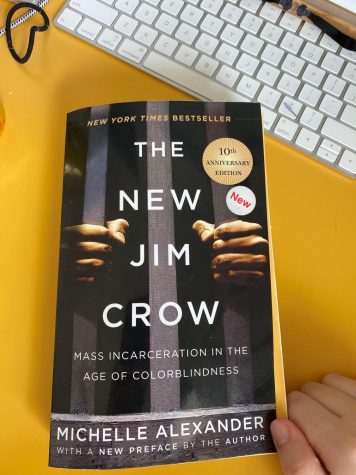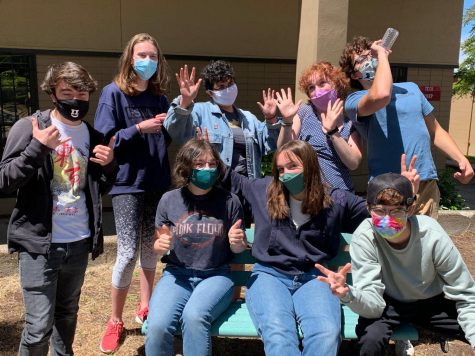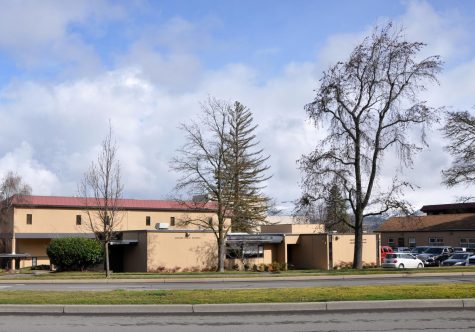Creative Writing Class
The possible class list at Ashland High School has many choices for almost any subject. Woodshop classes, three different foreign languages, child psychology and an entire web of art classes. Last year there were over ten English classes that a student could take. While looking through those English classes, not a single one has a title like “creative writing.” For years now AHS hasn’t had a purely creative writing class. Why though? To classify a specific class as an English course it must meet certain requirements from the state for reading and writing. Most purely creative writing classes can’t meet these standards and so the high school swaps them out for a class that can.
I believe that a creative writing class should be added to the class list here at AHS. Would it really be beneficial to students? Should the class be made an elective to avoid state requirements? Should the class be a semester long or year-long? The student leader and the co-founder of the Writers and Poets Club here at AHS, Gracie Yaconelli, answered all of these questions for me.
Yaconelli believes that the addition of a creative writing class could be very beneficial to students even though her club already exists, “I think [the Writers and Poets Club] is just another place for students to kind of act out one of their passions and hobbies outside of school.” Just as some people like to work on cars or bake in their free time, some people like to write poetry and fictional stories. Ashland High has a mechanics class and several levels of culinary arts classes. It makes sense that the high school would also have a class dedicated to creative writing, especially since the high school has numerous English teachers that could teach the class. Multiple studies have also shown that creative writing can also be a great way for many people to help their mental health and even be therapeutic by allowing people time and an outlet to process their emotions. Yaconelli believes that, “Creative writing is so important in life and it can be a really important skill.”
It is important to consider how the class would fit into a student’s schedule. Whether it is an English class or an elective, Yaconelli is open to either, “I think it could go either way. I think it kind of depends on the class cause I don’t think it would necessarily need to be an English class…. I think it would be very doable to just include a creative writing class just as an elective.” Making it an elective instead of an english class would also allow the school district to get around the teaching requirements for reading and writing. Oftentimes, these specific requirements can’t be reached through a creative writing class and so that keeps school districts from having them as an english class. Or if they do have an english class with creative writing they will be only partially dedicated to that. The rest of the class time is allocated to reading and other types of writing, like essay writing. Usually the classes read British and American classics, like Moby Dick, and write essays on them. The class might focus on creative writing for a semester or for a few weeks but ultimately it all depends on the teacher.
Diving further into the exact scheduling of the class, should it be a year-long or semester class? “People could benefit from a semester. I’m sure that some kids would want to do a year-long elective, but I think that a semester would maybe be more appealing to a wider range of students because they might not want to commit to a year,” Yaconelli suggested. Most if not all students would be taking a regular English class at the same time, so if the two classes with writing assignments became too much homework they could always take a different elective the next semester. Being allowed to back out of the class after one semester could also ease some tensions students have about workload and time management.
With creative writing being an outlet for many people, several qualified teachers, and the potential to get around state requirements by making it an elective, there are few reasons to not start a purely creative writing class.
If you would like to hear more about creative writing from Yaconelli and other students, the Writers and Poets Club meets on Thursday at lunch to discuss different author’s writing styles and practices their own writing. Find the club’s Zoom link in the grizz-o-gram’s list of clubs.







